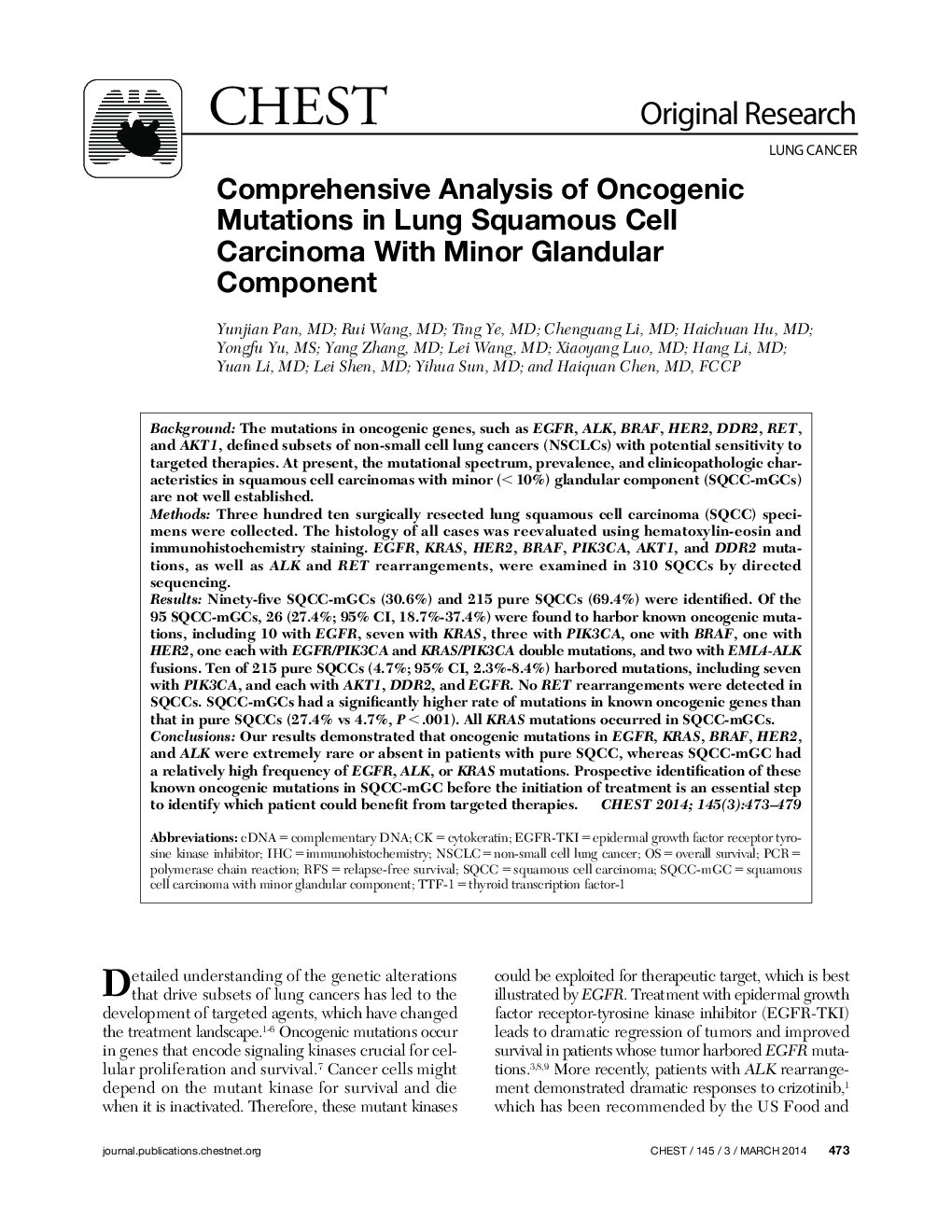| کد مقاله | کد نشریه | سال انتشار | مقاله انگلیسی | نسخه تمام متن |
|---|---|---|---|---|
| 2900014 | 1173316 | 2014 | 7 صفحه PDF | دانلود رایگان |
BackgroundThe mutations in oncogenic genes, such as EGFR, ALK, BRAF, HER2, DDR2, RET, and AKT1, defined subsets of non-small cell lung cancers (NSCLCs) with potential sensitivity to targeted therapies. At present, the mutational spectrum, prevalence, and clinicopathologic characteristics in squamous cell carcinomas with minor (< 10%) glandular component (SQCC-mGCs) are not well established.MethodsThree hundred ten surgically resected lung squamous cell carcinoma (SQCC) specimens were collected. The histology of all cases was reevaluated using hematoxylin-eosin and immunohistochemistry staining. EGFR, KRAS, HER2, BRAF, PIK3CA, AKT1, and DDR2 mutations, as well as ALK and RET rearrangements, were examined in 310 SQCCs by directed sequencing.ResultsNinety-five SQCC-mGCs (30.6%) and 215 pure SQCCs (69.4%) were identified. Of the 95 SQCC-mGCs, 26 (27.4%; 95% CI, 18.7%-37.4%) were found to harbor known oncogenic mutations, including 10 with EGFR, seven with KRAS, three with PIK3CA, one with BRAF, one with HER2, one each with EGFR/PIK3CA and KRAS/PIK3CA double mutations, and two with EML4-ALK fusions. Ten of 215 pure SQCCs (4.7%; 95% CI, 2.3%-8.4%) harbored mutations, including seven with PIK3CA, and each with AKT1, DDR2, and EGFR. No RET rearrangements were detected in SQCCs. SQCC-mGCs had a significantly higher rate of mutations in known oncogenic genes than that in pure SQCCs (27.4% vs 4.7%, P < .001). All KRAS mutations occurred in SQCC-mGCs.ConclusionsOur results demonstrated that oncogenic mutations in EGFR, KRAS, BRAF, HER2, and ALK were extremely rare or absent in patients with pure SQCC, whereas SQCC-mGC had a relatively high frequency of EGFR, ALK, or KRAS mutations. Prospective identification of these known oncogenic mutations in SQCC-mGC before the initiation of treatment is an essential step to identify which patient could benefit from targeted therapies.
Journal: Chest - Volume 145, Issue 3, March 2014, Pages 473–479
